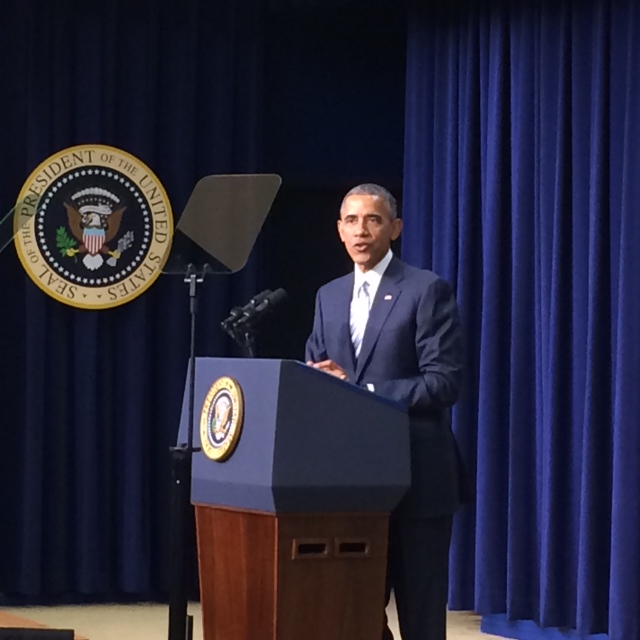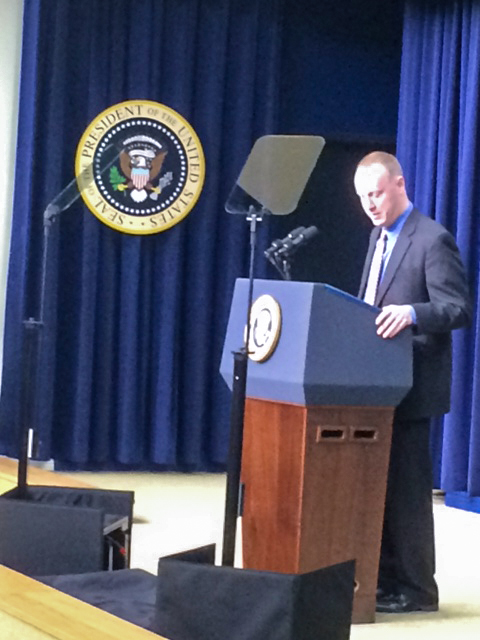National Coalition for Cancer Survivorship Joins the Health Care Payment Learning and Action Network

President Obama Spoke at the Health Care Payment Learning and Action Network Kick-Off Meeting Today
Today the National Coalition for Cancer Survivorship (NCCS) joined the Health Care Payment Learning and Action Network and announced its goal in support of alternative payment models that will foster better, more patient-centered cancer care for the nation’s more than 14 million cancer survivors. NCCS Board Chair and cancer survivor, Michael Kappel, attended the inaugural meeting of the Network and represented the needs of cancer survivors in new health care payment and delivery models. The meeting, which included working groups of diverse stakeholders, followed a White House event at which President Barack Obama highlighted the role of the Network in providing advice to the Centers for Medicare & Medicaid Services on payment reform efforts.
Earlier in 2015, Health and Human Services Secretary (HHS) Sylvia Mathews Burwell set forth ambitious goals for moving away from fee-for-service payment in Medicare and Medicaid and replacing that system with value-based payment, including alternative systems such as bundled payments, accountable care organizations, and patient-centered medical homes. The Health Care Payment Learning and Action Network, also announced by Secretary Burwell, will include a range of stakeholders who will share health reform experiences and offer advice to HHS and CMS on payment reform demonstration programs and initiatives.

Dr. Patrick Conway Explained the Network Objectives
In joining the Network, NCCS affirmed its support for HHS’ goals of a transition to 30% alternative payment model by 2016 and 50% by 2018 and committed to work with Network participants to establish standard definitions for alternative payment models. Additionally, NCCS set its own organizational goals to (1) represent the needs of cancer survivors in planning, implementing, and measuring alternative payment models to encourage a patient-centered approach to care, (2) educate cancer survivors and advocates about alternative payment models for cancer care and the need to improve quality measurement for cancer care, and (3) encourage payers and cancer care providers to participate in alternative payment models that include cancer care planning and coordination.
“We need to keep patients at the center of payment reform efforts and ensure that alternative payment systems are structured and financed to foster practice transformation,” said Kappel. “The cancer survivor’s goal is a cancer care team that participates in shared decision-making, engages in cancer care planning and coordination, and that meets cancer care quality standards. New payment systems should be structured to achieve these goals, while ensuring patients have access to innovative therapies when they are approved.” He also recommended the development of new cancer care quality measures that will evaluate patient satisfaction and assess patient outcomes.
For more than a decade, NCCS has advocated for reforms of the fee-for-service system to encourage better cancer care planning and coordination and to foster cancer care quality improvement. The organization has embraced the movement from volume-based payment to alternative payment systems. NCCS has endorsed the Oncology Care Model, an episode of care demonstration program that has been announced by CMS for voluntary payer and provider participation in 2016. That model represents an important avenue for improving cancer care delivery and enhancing patient outcomes.
“NCCS has been a leading voice in ensuring that patient perspectives are considered in efforts to reform payment for cancer care,” said Kappel. “We hope that the Health Care Payment Learning and Action Network will stimulate creative approaches to alternative payment models that reward quality over quantity and foster delivery of the right care, to the right patient, at the right time. We look forward to participating in the Network and continuing to advocate on behalf of cancer patients and survivors for the best quality cancer care.”
###
The National Coalition for Cancer Survivorship is a patient-centered, patient-focused organization advocating for access to the best possible cancer care for all people with cancer. We drive patient-centered policy change to make cancer care better for patients and their families. We believe the best possible cancer care means the right care, at the right time, for the right reason. Cancer care should reflect an individual’s needs, values, and preferences. Patients deserve to be partners in their care, and both patients and health care systems benefit when patients are engaged in their care. NCCS represents the interests of cancer patients to Congress, the federal government, payers, policymakers, and all others whose work affects people with cancer.




